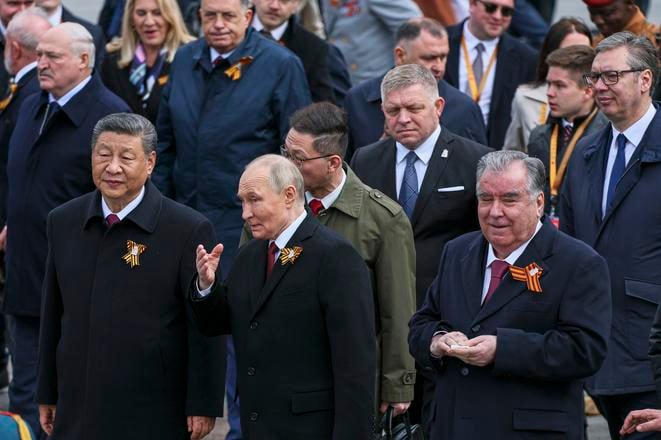Prime Minister Robert Fico is embracing a new geopolitical narrative – one that contrasts Western liberal democracy with what he describes as the “effective governance” of one-party states. His comments, delivered in a recent interview, suggest a growing admiration for autocratic models and a conviction that Europe has lost its way.
Speaking just a day after attending a European Political Community summit in Tirana on 16 May – where German Chancellor Friedrich Merz urged the EU to adopt stricter migration controls – Fico struck a triumphant tone. “Today, the German chancellor is advocating for the very policies I supported from the beginning,” he said, referring to his longstanding opposition to mandatory refugee quotas. “Back then, other prime ministers wouldn’t even speak to me in the lift.”
Fico cast himself as a prescient critic of the European consensus, arguing that the liberal democratic order has failed to deliver. “Liberalism and the idea of liberal democracy have completely collapsed. It’s terribly ineffective,” he said. In contrast, he praised the systems in Vietnam and China – countries he visited in recent months – as models of long-term planning and continuity. During a trip to Moscow on 9 May to mark Victory Day, he held informal talks with senior Chinese and Vietnamese officials, further reinforcing his admiration for their governance models. He has also announced plans to visit Vietnam again in the autumn.
His comments also reflect a shift in economic diplomacy. Fico has repeatedly stated that while Slovakia remains a member of the European Union, it should not limit its economic ties to the West. He argues that global growth is increasingly driven by Asia, and that Slovakia must seek economic opportunities beyond the EU – particularly in China and Southeast Asia.
“The difference is that they make plans and actually carry them out,” he said, lamenting what he sees as Europe’s addiction to political change. “In Slovakia, we tried to write a vision for 2030. The opposition said they wouldn’t respect it. Every four years, a new government scraps everything and starts over.”
This embrace of autocratic governance comes amid broader regional trends. Across Central and Eastern Europe, nationalist and conservative leaders have been criticising EU institutions and questioning Western liberal norms. Fico – now in his fourth term – has returned to power by capitalising on this scepticism, and is pushing to reshape the debate in Brussels.
He portrayed the proliferation of political parties in Slovakia – over a hundred are registered, with more than 20 contesting parliamentary elections – as a symptom of a system out of control. “This borderless liberalism has failed. Everyone does whatever they want, without accountability.”
Fico’s remarks have drawn sharp criticism from the opposition. Michal Šimečka, leader of Progressive Slovakia, described the prime minister’s statements as “unbelievable” coming from the leader of an EU member state. “Prime Minister Fico openly praises one-party autocratic regimes – China and Vietnam – claiming they are better than liberal democracy with multiple parties chosen by voters,” Šimečka said. “Fico complains that he’s unfairly accused of pulling Slovakia away from Europe and dismantling democracy. Then he goes on national television and confirms it himself. But Slovakia is not Russia or China. People in Slovakia fought for democracy in 1989 and they won’t let it be stolen. They know their prosperity and security lie in Europe – and they’ll act accordingly in the next election.”
In an interview with Joj on Sunday, Šimečka said that while he would not oppose talks with China or Vietnam as prime minister, his priority would be strengthening ties with Western partners. He criticised Fico for failing to make official bilateral visits to key European allies such as France, the United Kingdom or Poland since returning to office.
Fico’s remarks also hint at a deeper ideological shift. While he insisted that Slovakia must remain a democracy based on free elections, he called for a “reform of democratic political systems” to reduce political chaos – which, according to him, is visible in other European countries as well – and inefficiency. “If we keep running like this, we’ll never catch up with China.”


